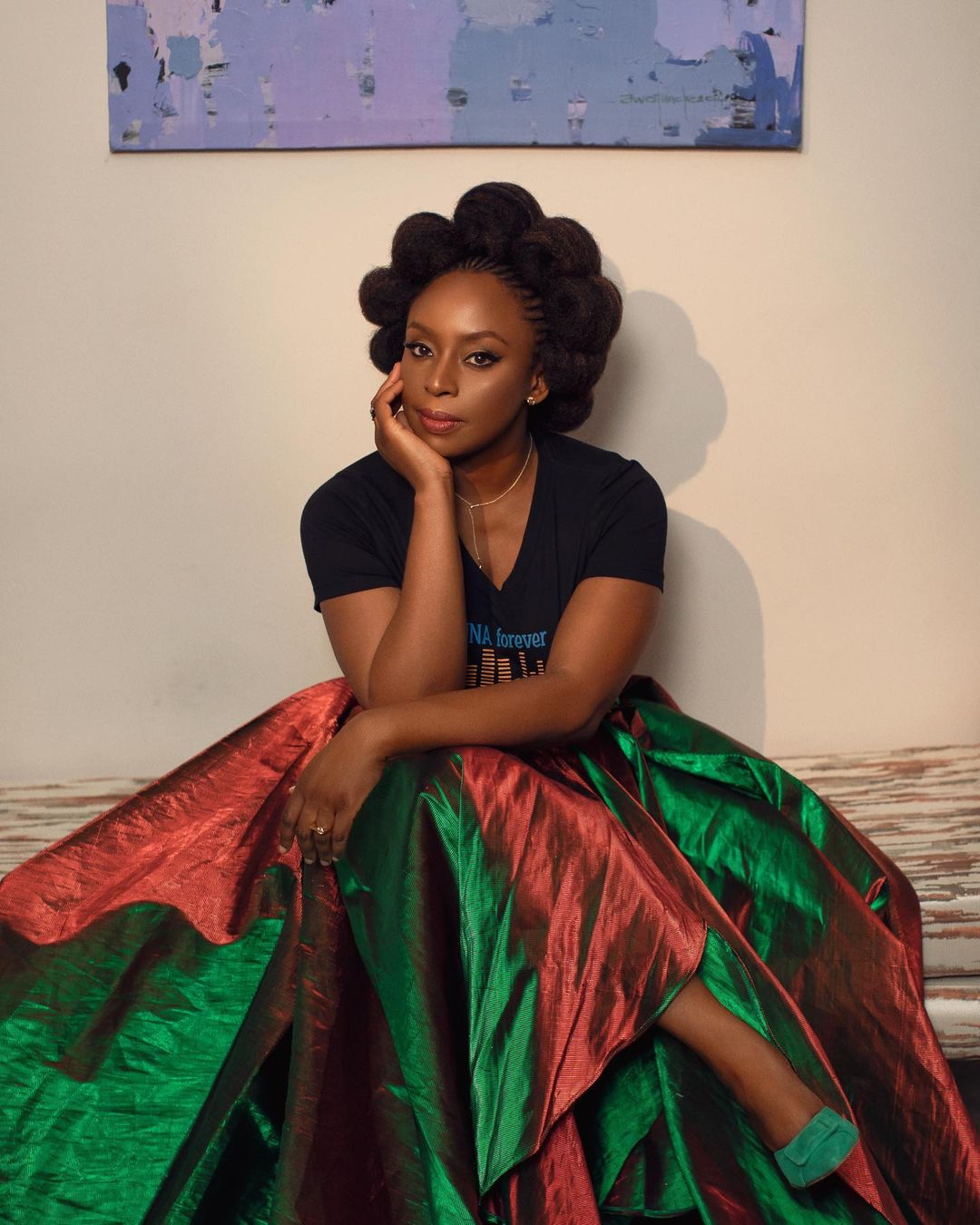Features
Chimamanda Ngozi Adichie’s Essay is Teaching One Thing: Sheathe Your Sword

There is one thing we are grateful to social media for: the power to hear and be heard. But for many of us, our cochlea singes while hearing, and in being heard, our tongues wag, oftentimes, too rapidly and flippantly.
If we lived in a world free of social media, we’d be limited to interacting with only the people we physically meet, call on phone or write to. We’d listen to one person at a time and in meeting physically, we’d be forced to see the emotions and gestures behind each spoken word. We’d understand that people’s opinions are formed from their nature – you’d know that cousin of yours who is swift to call for a fight has always been a troublesome person, so you’d dismiss his/her words and move on with life. No hard feelings.
With social media, it is different. Here, millions of people are talking at the same time and sharing their very diverse opinions synchronously – and you’ve got to listen. For platforms that are text-bound, you are deprived of seeing emotions behind words and for platforms that are photos-bound, you see what people want you to see.
People rise by climbing the ladder of ‘content’, amass followers, subconsciously command veneration. Some have realised that fighting for a particular cause or saying certain words would get them seats at certain tables and the popularity they crave, so their words, anger, praises, movements are strategic.
For those who do not care about climbing any ladder or becoming popular, but enjoy discussions and engage in conversations, it is still dicey. Too much consumption of many and diverse voices on social media has a way of muddling up your thought processes and shaping your opinions, whether or not you want it to be so. And when you engage in conversations of which origin you do not know – which is not a bad thing, by the way – you are not sure if you are taking sides, joining a mob to lynch someone, fuelling the ego of the conversation originator, or simply engaging in a seemingly harmless discussion. Worse, you do not even know if the things you say on social media are shaped by your own reality, belief system, experiences and what not, or if they have been chiselled and sculpted by other louder voices.
In consuming too many spilled thoughts, musings and opinions, and engaging in too many conversations, many people subliminally develop split personalities – being one person online and holding on to certain ideologies, and being a different person offline.
Critical thinking is important. Self-awareness, deep introspections should be the core of our existence, and when conversing on social media, we must ruminate on if we are following someone on a personal vendetta thinking we are just engaging. We must not allow ourselves to be wheedled or mentally bludgeoned into supporting an opinion, cause or person, especially one whose origin we do not intimately know of, and we must ask ourselves if our anger is righteous, if our praises are not borne of sycophancy, and if our thoughts and opinions are from or for us. Lest we become part of a mob.
Part three of Chimamanda Adichie‘s essay, It Is Obscene: A True Reflection In Three Parts, teaches us several things: to not be swift to raise our machetes, ask ourselves why we believe in what we believe in, and not be drawn into faux outrage fueled by those who weaponise the engagement and publicity for their own personal gain.
For The Conversation, Julius Maina writes that “The internet is not decentralising communication into a level playing field as we once thought. Instead it is becoming a tool for the re-establishment and re-enforcing of tribal groupings, and the monopolisation of debate by micro-celebrities who may or may not be deserving of serious attention.”
As we chisel the social fabric of how our society works, we are (perhaps unconsciously) building a social media world where people work to control – dominate and shape – certain narratives. A world where a group of people consistently push politically (or any other wise) motivated content for their own mileage. Where many people are “so terrified of having the wrong opinions that they have robbed themselves of the opportunity to think and to learn and to grow.” Where people have “an unrealistic expectation of puritanism from others,” “have no compassion for anybody genuinely curious or confused,” and shame trails those with opinions deemed to be “subpar” as inexorably as the boos and jeers. A world where people are swift to be outraged about everything, and join a mob because they need an outlet for their pent-up anger and disdain for the world and how it’s run.
The world we create in our tabloids have a way of seeping into the lives we live offline, especially in our relationships with others. We are blurring the line between intimacy and publicity, and people seem to hardly reach out or have conversations to settle scores. Instead, people are subbing their friends on social media, couples are fighting dirty, people are canceling friendships because of different opinions and are breaking relationships because of faux sense of knowing. The gist is echoed over and over again, and over flogged until it becomes a trending topic. Others are taking sides and making it messier.
The inclusivity we so yap about is not being embraced, and what’s inclusivity if we do not first learn to espouse diverse opinions? Everyone is scrambling to be perceived a certain way and there’s “a passionate performance of virtue that is well executed in the public space of Twitter but not in the intimate space of friendship.”
It’s a rat race.
As we strive to hear and be heard, we must avoid one thing – being part of a mob. We must learn to sheath our swords, weigh the wisdom of the crowd – especially when scores are being settled, on ideologies and causes – and determine if we want to lend our hearts, voices and name to it.





















